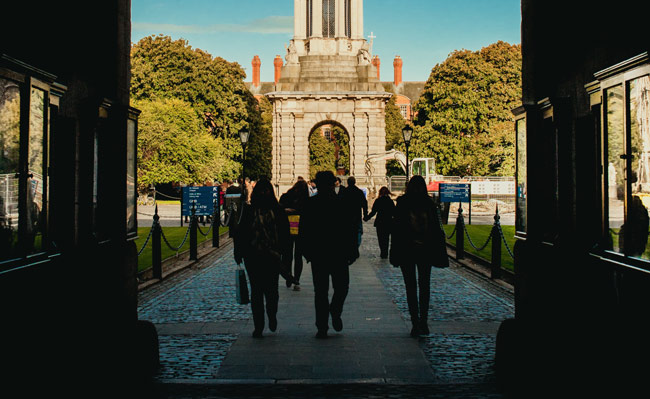At the start of the first term, I was approached by the Afro-Caribbean society to sit on a panel, Letters to the Motherland, discussing societal stigma and pressures faced by black people in Ireland. The aim of the panel was to discuss a number of topics that are currently affecting the Afro-Caribbean students on campus. I felt hesitant to do this because I grew up in a regional Irish town and have always faced a lot of racism. Naturally, I developed certain coping mechanisms, such as laughing it off when my friend said “nigga” during a Kendrick song, but I never realised how desensitised I was until I was sat on this panel.
The first topic discussed by the panel was the practice of changing names on CVs to avoid the perception of being “foreign” to Irish companies. This is something that I had never personally considered doing, but after hearing how successful it was for some people in the audience I was taken aback. Many members of the audience raised their hand to signify that it was something they had done. Having a relatively easy name to pronounce meant that I had skipped an entire episode of hurt and anguish of which I had been completely unaware. I mean, is it really that hard to ask someone how to pronounce their name?
The passage that I read to the group gathered was about something that seems relatively harmless unless you face it on a daily basis. “You’re the whitest black person I’ve ever met!”: this is a phrase that seems playful at first but when looked at more critically is damaging to one’s self-esteem. The standards set for black individuals in a predominantly white world can force conformation to meet those standard or fail. This is what many ethnic minorities face on a daily basis – resist the pressure and be labelled the token unit of diversity or conform and be named the whitest black person they’ve ever met. To succeed and remain true to the culture you grew up in is difficult. I can hear replies telling me that the phrase “whitest black man” is just a joke – I mean, it’s an oxymoron right?
I don’t speak the way Hollywood tells you I should, I don’t listen to the music you expect or I don’t dress the way you would expect of a young black man
When someone calls me that, what I hear is you telling me that I don’t exhibit the traits you usually identify as “black”. I don’t speak the way Hollywood tells you I should, I don’t listen to the music you expect or I don’t dress the way you would expect of a young black man. In essence what you are doing is critiquing my experiences that culminate to give my personality. “Black” is not a personality type and many people refuse to grasp that. My friends back home in Carlow think that by speaking in a certain manner, I have become “white” and forgotten my culture. My friends in Dublin at times think that because I listen to a certain type of music, they can autofill the rest of the characteristics I possess. That’s not how it works. I can eat jollof rice (if you know, you know) and listen to classical music in my spare time. I can go to Conradh on Tuesdays and I can watch “Don’t Jealous Me” on YouTube. I’m a person. And just because someone shares the same skin colour as me doesn’t mean that our personality traits mirror each other.
As I rambled on in front of the audience, I found that the sentiments were echoed. To be frank, it has been tough to be black on campus this academic year. In October, a student pointed and said the n-word to a black student during a G debate and not enough was done about it by College and students. To be fair to the University Philosophical Society (the Phil), it has since drawn up an equity policy and plans to put in place measures to prevent such events from reoccurring.
To be frank, it has been tough to be black on campus this academic year
However, it is debatable whether anyone has internally questioned how students’ college experience and, more generally, life experience has been impacted by the incident. Personally, I have had to deal with increased levels of racism on campus this year and that was what drove me to write this article. I am not normally very forthcoming with my opinion, but hearing a black Trinity student upset as he spoke to me on the phone because he was called a “nigger” was an absolutely gut-wrenching experience that has influenced my outlook profoundly.
The aim of bringing this to light isn’t to criticise or point fingers. My aim is flag it to as many people as possible that racism exists in Ireland. It’s not confined to remote outposts of this country. It is just as heavily prevalent in Dublin – even right here in Trinity.
I closed my speech at the panel earlier this year with an invitation to the audience to “discuss” my contribution and I am still more than happy to talk to anyone about it. “White” and “black” are labels.







